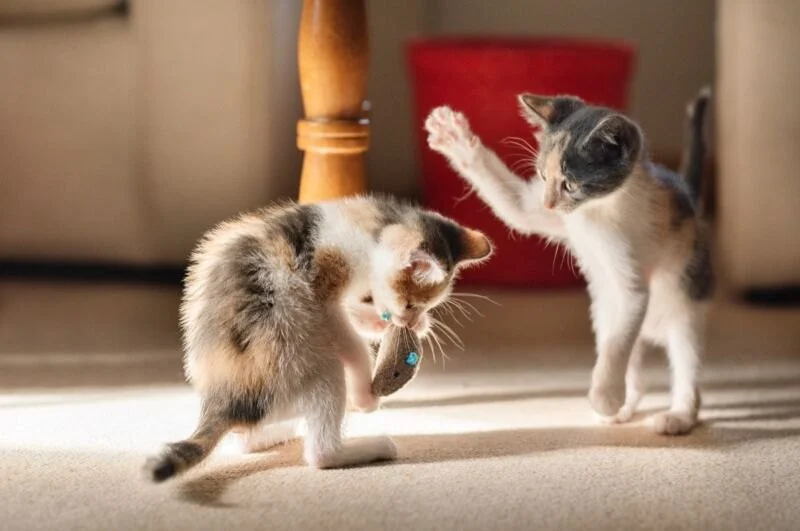
- What is Kitten Play Fighting?
- Normal vs. Aggressive Kitten Play
- How to Recognize Aggressive Kitten Behavior
- Tips for Handling Kitten Play Fighting
1. What is Kitten Play Fighting?
Kitten play fighting is a common and natural behavior among young cats, typically occurring as they develop social skills and physical coordination. During play, kittens engage in mock battles where they chase, pounce, and "fight" with each other in a friendly manner. It’s essential to recognize this behavior as playful rather than harmful.
Play fighting helps kittens learn vital survival skills such as hunting, defense, and the art of managing interactions with others. While these tussles might look rough at times, they usually don’t involve real aggression. They mimic behaviors they would use in real-life confrontations but are conducted without serious intent to harm.
2. Normal vs. Aggressive Kitten Play
It’s crucial to differentiate between normal playful behavior and aggressive behavior in kittens, as the two can often seem similar. Here’s how to tell them apart:
- Normal Play: Kittens tend to take turns during play fighting, where both kittens seem to enjoy the interaction. They may exhibit behaviors like chasing, pouncing, and light biting. There’s no intent to cause harm, and the fight typically ends without any distress from either kitten.
- Aggressive Play: Aggressive behavior, on the other hand, is marked by a lack of turns or breaks in the fighting. One kitten may continuously attack or pin the other down, and the kitten being attacked will show signs of distress, such as hissing, growling, or trying to escape.
Aggressive play fighting can escalate quickly if not monitored, whereas normal play will often end naturally when the kittens tire out or lose interest.
3. How to Recognize Aggressive Kitten Behavior
Recognizing aggressive behavior early is key to ensuring your kittens are safe and that the behavior doesn’t escalate. Some signs of aggressive kitten behavior include:
- Excessive Hissing or Growling: While a little hissing or growling is common in kitten play, if the noise is persistent and escalates, it could be a sign of aggression.
- One-Sided Play: If one kitten is consistently being chased, cornered, or pinned down, and the other shows no signs of stopping, this could indicate an aggressive dynamic.
- Physical Injury: If play fighting results in scratches, bites, or bleeding, it’s no longer healthy play and could signal aggression.
Aggression in kittens, if left unchecked, can lead to behavior problems in the future. It’s important to intervene early to teach proper boundaries and ensure both kittens are comfortable and safe.
4. Tips for Handling Kitten Play Fighting
If you notice your kittens getting too rough, here are some tips to help manage their play fighting:
- Provide Plenty of Toys: Give your kittens appropriate toys to redirect their energy. Things like soft balls, strings, or feather wands are great for interactive play that mimics hunting.
- Monitor Playtime: Supervise your kittens during play to ensure neither one is being overly aggressive. If you see signs of distress, separate them gently and give them time to calm down.
- Set Boundaries: If play fighting becomes too rough, make a loud noise or use a water spray bottle to break up the fight. Teach your kittens that aggressive behavior is not tolerated.
- Provide Quiet Time: Ensure that your kittens have time to rest and recover after playing. Overstimulated kittens are more likely to engage in rough play and aggression.
With proper guidance and understanding, most kittens can learn how to balance play and relaxation, fostering good behavior habits that will carry on into adulthood.
Conclusion
Kitten play fighting is a normal and necessary part of development, but recognizing the line between playful behavior and aggression is important for maintaining a harmonious home. By observing your kittens’ body language and providing appropriate toys, you can ensure that their playful interactions remain fun and safe. If you're ever uncertain about your kitten’s behavior, consult a veterinarian or pet behavior expert for guidance.
For more tips on raising healthy, well-behaved kittens, visit Omnia Pet, where we offer expert advice, toys, and products designed for your kitten’s health and happiness.




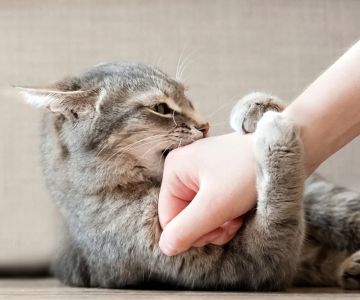
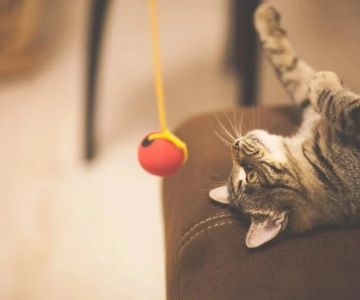
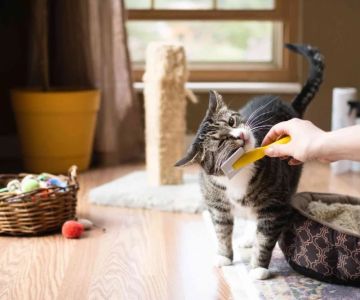

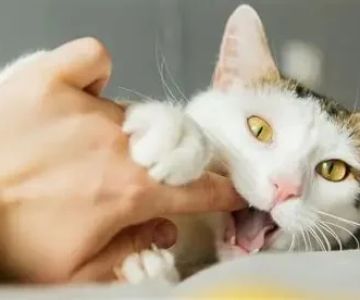
 Hollywood Feed4.0 (184 reviews)
Hollywood Feed4.0 (184 reviews) Brew Biscuits5.0 (2 reviews)
Brew Biscuits5.0 (2 reviews) All Friends Animal Hospital4.0 (446 reviews)
All Friends Animal Hospital4.0 (446 reviews) Kittylandkittens LLC0.0 (0 reviews)
Kittylandkittens LLC0.0 (0 reviews) Village Animal Clinic4.0 (212 reviews)
Village Animal Clinic4.0 (212 reviews) Rift Lake Aquatics4.0 (165 reviews)
Rift Lake Aquatics4.0 (165 reviews) Understanding Pet Insurance: What Does It Actually Cover?
Understanding Pet Insurance: What Does It Actually Cover? How to Keep Your Kitten's Eyes Clean and Free of Discharge
How to Keep Your Kitten's Eyes Clean and Free of Discharge The Truth About Heartworm Disease: Prevention is Cheaper Than Cure
The Truth About Heartworm Disease: Prevention is Cheaper Than Cure Why Is My Kitten's Belly Button Showing? | Omnia Pet
Why Is My Kitten's Belly Button Showing? | Omnia Pet Why Does My Cat Bite Me Gently? Love Bites Explained
Why Does My Cat Bite Me Gently? Love Bites Explained How to Stop Your Kitten from Getting into Cabinets
How to Stop Your Kitten from Getting into Cabinets